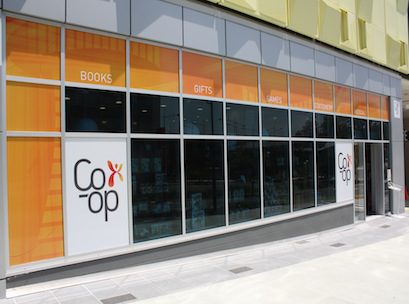The SRC has signalled its support to a student-led campaign to force the board of the Co-Op to resign, after students were prevented from voting at the recent annual general meeting.
The Co-Op, which was established by students in the 1950s to provide more affordable textbooks, has been taken down a more corporate route since the 1990s.
At the AGM in Wyong, NSW on 31 March an attempt by a group of students, mainly made up of members of the University of Sydney SRC, to oust the board of directors was foiled by the Co-Op’s national secretary, Talal Yassine, who declared dozens of proxy votes invalid.
The general secretary of the University of Sydney’s SRC, Daniel Ergas, moved a motion at the meeting to vacate the board and reduce the Co-Op board members’ remuneration from $330,000 to $0.
Yassine did not provide a reason for why the students’ proxies were invalid.
The ANU SRC passed a motion on 19 April calling on the Co-Op board to resign.
‘We call upon the Co-Op board to step down, because they’re a bunch of shady bastards,’ general representative Harry Needham said, speaking in favour of the motion.
The secretary, Yassine, is a rising Labor Right operative. The board has at times featured people employed by Crescent Wealth, Yassine’s investment bank, and other Labor figures.
No university students currently sit on the Co-Op’s board.
Co-op members say the organisation has actively sought to prevent rank and file members from participating in the governance of the organisation. They say holding the poorly advertised AGM on the Central Coast, in a location difficult for most students to travel to, was an example of this active attempt to avoid accountability from members.
A senior Co-Op employee told the ABC in March that management had worked to distance the membership base to maintain control.
‘They want no engagement, no opposition, they just want to be able to ram things through and protect the status quo. There’s no interest in accountability and engagement with members,’ they said on condition of anonymity.
The Co-Op, which has more than two million members and turns over $150 million annually, recorded a loss of $1.4 million in 2016 and $3.7 million in 2015.
The textbook retailer, which has a store located in Union Court, enjoys a virtual monopoly on the sale of textbooks to Australian university students.
We acknowledge the Ngunnawal and Ngambri people, who are the Traditional Custodians of the land on which Woroni, Woroni Radio and Woroni TV are created, edited, published, printed and distributed. We pay our respects to Elders past and present. We acknowledge that the name Woroni was taken from the Wadi Wadi Nation without permission, and we are striving to do better for future reconciliation.
